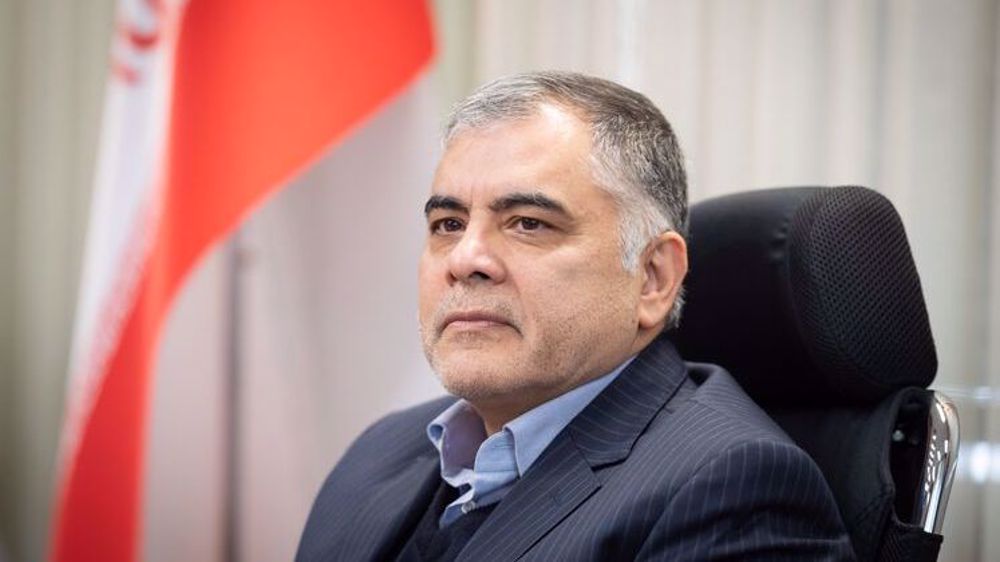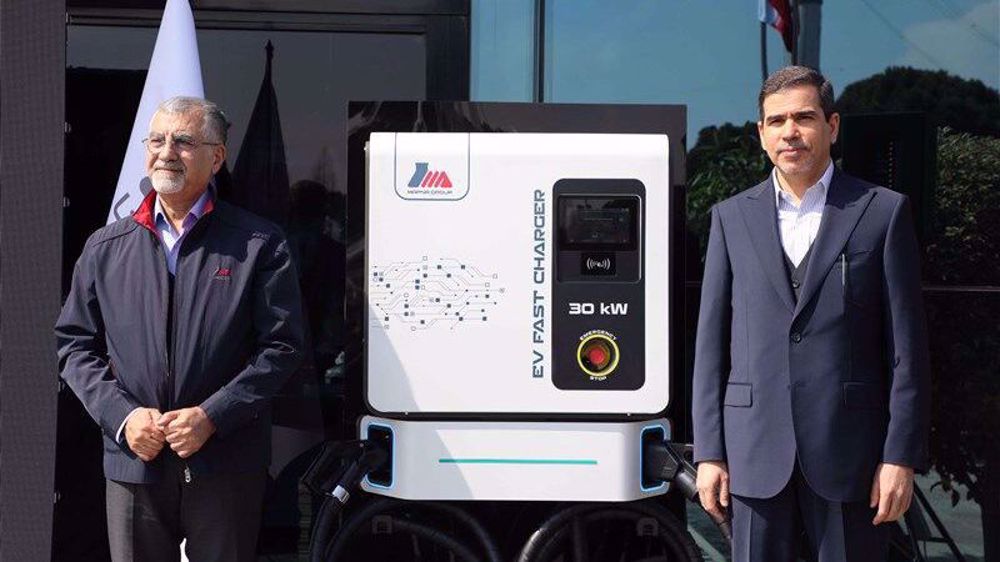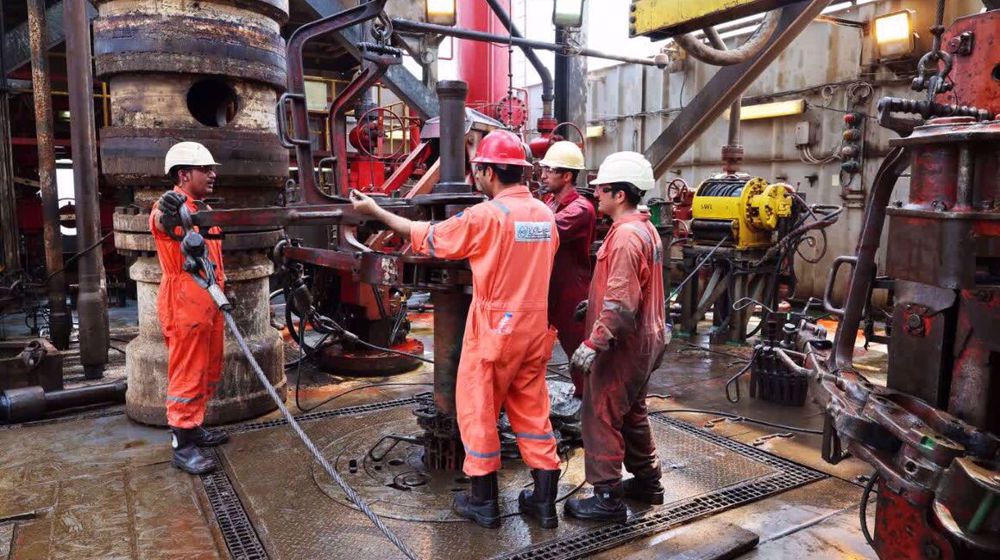US failed to zero out Iran's oil sales: Speaker Larijani
Iran’s Parliament speaker Ali Larijani says the United States has had no success in its “maximum pressure” campaign against Tehran even as American sanctions have impacted the Iranian economy.
Washington has been tightening the screws on Tehran’s main source of income, aiming to cut Iran’s oil sales to zero, after President Donald Trump reimposed sanctions on the Islamic Republic in November.
“The Americans have not achieved any success against Iran. They wanted to bring oil sales down to zero but they did not succeed,” Larijani told a parliament session in Tehran Tuesday.
While the sanctions resulted in a decline in Iran’s oil sales and created some economic pressure, the Americans failed to achieve their primary goals, the speaker added.
Washington withdrew last year from an international nuclear deal signed with Tehran in 2015. It is ratcheting up sanctions in efforts to return Iran to negotiating table for a new deal to curb the country’s missile capabilities and its anti-Israeli role in the region.
Lately, the US has raised the ante by ordering military reinforcements, including a strike group, B-52 bombers and Patriot missiles, to the Middle East to confront unspecified Iranian threats.
A series of suspicious attacks on oil tankers in the Persian Gulf and deliberate intrusion of US aircraft into the Iranian airspace have brought tensions to a head. In June, Trump claimed that he had called off a military strike in response to Iran’s downing of a sophisticated American drone.
Larijani said, “The American adventurism has posed us a new problem every single day which has impacted our economy, so a clear analysis of their actions is needed.”

According to Larijani, the primary goal behind this animosity is to check Iran’s economic development.
“Through economic pressures, they want to have Iran stuck in internal problems. They have ratcheted up pressure on people to stir economic discontent,” he said.
China and other countries are receiving oil shipments from a larger number of Iranian tankers than was previously known, The New York Times reported on Saturday.
At least 12 Iranian tankers have loaded and delivered oil across Asia and the Mediterranean since May 2, the paper said.
At least six of those ships unloaded their cargo at ports in China, while other ships have sailed to the Mediterranean through the Suez Canal, it added.
The continued flow of oil underscores the difficulty the Trump administration has had in using sanctions to bring Iranian oil exports to zero after breaking with allies and partners on Iran policy.
"That shows there are limitations to US power. China and other places are prepared to say, ‘No, we’re not going to follow the US lead,’” Richard Nephew, a scholar at Columbia University and a former White House and State Department official who helped enforce Iran sanctions during the Obama administration, told the Times.
According to Noam Raydan, an analyst at ClipperData which tracks global crude shipments, US sanctions have not stopped Iran from moving oil to the Mediterranean and Asia.
It is not illegal under international law to buy and haul Iranian oil or related products. However, foreign companies that ignore the sanctions and do business with American companies or banks risk being punished by the United States.
Japan and South Korea have reportedly complied with the American sanctions. Turkish officials said in late May they were halting imports of Iranian oil but did not agree with the American sanctions.
China continues to be the largest buyer of Iranian oil. The Trump administration is starting to intensify sanctions enforcement to try to end the exports to the Asian powerhouse.
Last month, the US announced sanctions against Chinese state-owned enterprise Zhuhai Zhenrong for continuing oil purchases from Iran.
Beijing strongly denounced the sanctions, saying it was “opposed to the US bullying behavior of wantonly cracking down, suppressing and sanctioning Chinese companies and individuals based on US domestic law”.
Zhuhai Zhenrong is already under US sanctions for supplying gasoline to Iran in 2012 and has little overseas exposure.
According to Nephew, the Trump administration would need to punish the People’s Bank of China or other Chinese banks that engage in transactions with the Central Bank of Iran to really tighten the screws on Beijing.
The United States could also penalize the energy giant Sinopec which also imports oil from Iran. But sanctioning the banks or Sinopec would have far-reaching consequences for global trade and deepen the divide between Washington and Beijing, the Times said.
The two nations are already embroiled in a bitter trade war, which has seen them impose heavy tariffs on hundreds of billions of dollars in two-way trade.
According to Nephew, some countries watching the continuing imports of Iranian oil by China might start pressuring the Trump administration to grant them exceptions. Or they might decide to just go ahead and buy the oil, perhaps in secret.
Iranian President Hassan Rouhani said after a meeting with Shinzo Abe in June that the Japanese prime minister had told him Japan was interested in continuing to buy Iran's oil.
US, Israel eye Africa for displacing Palestinians from Gaza: Report
Families of Iranian victims of terror condemn Italy's support for MKO
Security Council agrees to condemn massacre of Alawites in Syria
Greenland PM summons party leaders after Trump's annexation comments
China, Russia urge end to ‘unlawful sanctions’ on Iran
Columbia University expels, suspends pro-Palestine students
Ex-head of Israeli military intelligence welcomes 'chaos' in Syria
Iran: New sanctions show US 'hypocrisy, infringement of law'











 This makes it easy to access the Press TV website
This makes it easy to access the Press TV website